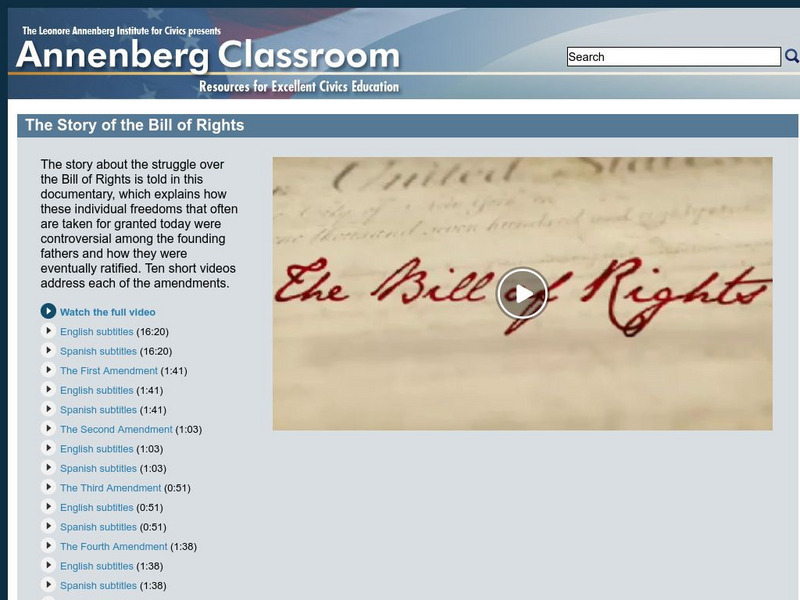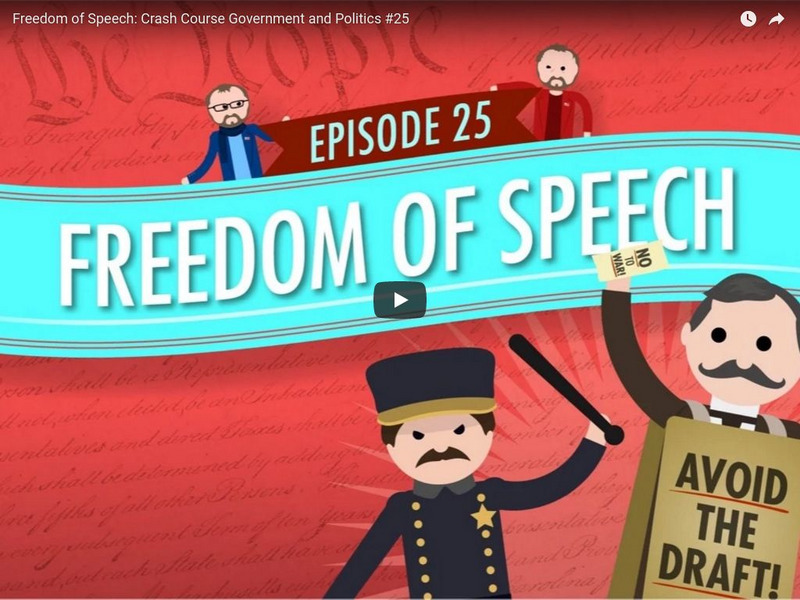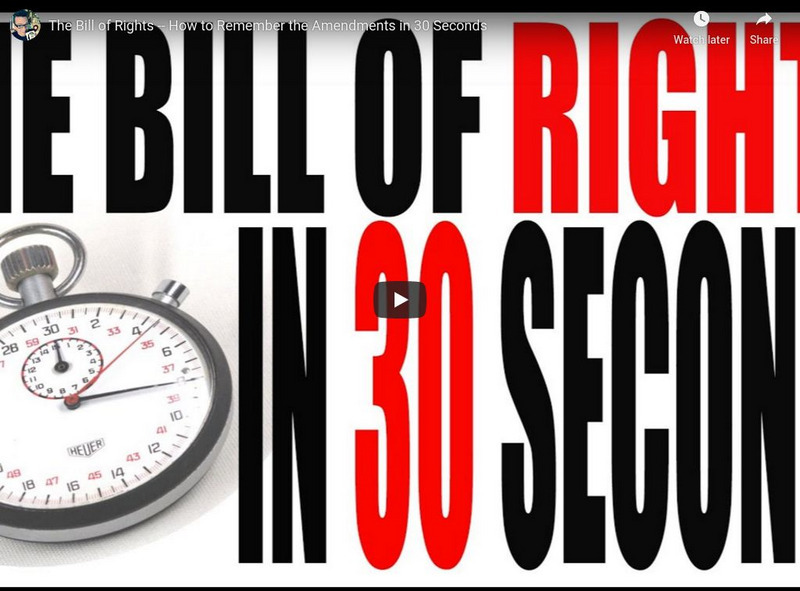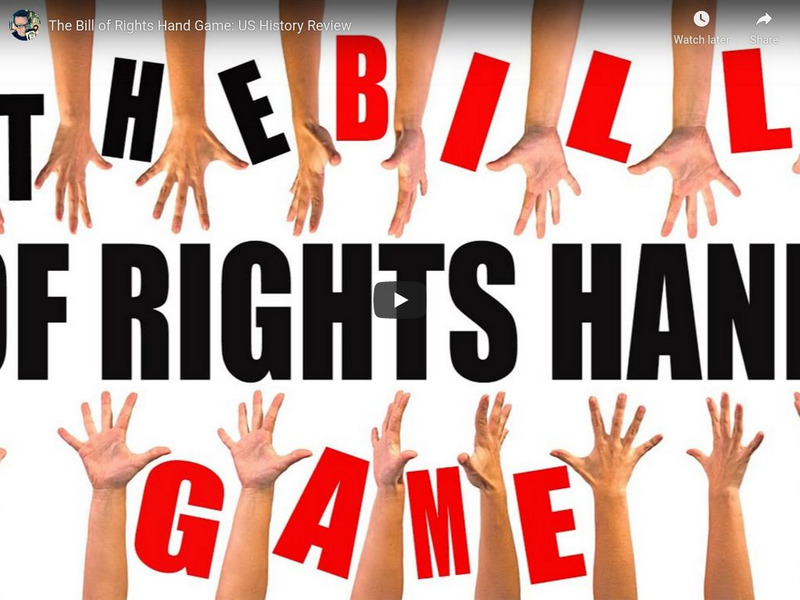Hi, what do you want to do?
Annenberg Foundation
Annenberg Classroom: The Story of the Bill of Rights
Eleven short documentaries tell the story of these individual freedoms that often are taken for granted today. But in 1787, when they were first discussed at the Constitutional Convention, the Founding Fathers rejected them. Why were...
Crash Course
Crash Course: Government and Politics #25: Freedom of Speech
Crash Course video in which Craig Benzine examines the First Amendment right of Freedom of Speech, discussing court interpretation, what is protected, and what is not. [6:51]
Center For Civic Education
60 Second Civics: Bill of Rights Pt. 23: Incorporation
The passage of the Bill of Rights had little impact on most people. In 1833, the Supreme Court ruled that it applied only to the federal government. The provisions in the Bill of Rights were incorporated later through the 14th Amendment...
TED Talks
Ted: Ted Ed: Why Wasn't the Bill of Rights Originally in the Us Constitution?
Lesson in which students learn about the origins of the Constitution and Bill of Rights through informative and animated video [4:32] written by educator James Coll.
Khan Academy
Khan Academy: The Constitution and the Bill of Rights: Amendments 1 3
In this video, historian Joe Ellis and Aspen Institute President and CEO Walter Isaacson discuss the Constitution's Bill of Rights, Amendments 1-3. [6:41]
Khan Academy
Khan Academy: The Constitution and the Bill of Rights: Amendments 4, 5, 10
In this video, historian Joe Ellis and Aspen Institute President and CEO Walter Isaacson discuss the Constitution's Bill of Rights, Amendments 4, 5, and 10. [5:23]
Khan Academy
Khan Academy: First Amendment to the u.s. Constitution
Jeffrey Rosen of the National Constitution Center in conversation with Walter Isaacson of the Aspen Institute about the First Amendment. [7:05]
Khan Academy
Khan Academy: The Fourth Amendment of the u.s. Constitution
'The right of the people to be secure in their persons, houses, papers and effects against unreasonable searches and seizures shall not be violated.' Jeffrey Rosen of the National Constitution Center in conversation with Walter Isaacson...
Khan Academy
Khan Academy: The Personal Aspects of James Madison
Lynne Cheney, author of "James Madison: A Life Reconsidered" in conversation with Walter Isaacson of the Aspen Institute about the personal life of James Madison. [5:37]
Khan Academy
Khan Academy: Overview: James Madison
Madison was "the most important person responsible for creating what America is today" and played many roles in the founding of America. Lynne Cheney, author of "James Madison: A Life Reconsidered" gives an overview of his life. [6:04]
HipHughes History
Hip Hughes History: The Ninth Amendment Explained
A basic explanation of the Ninth Amendment to the Constitution. [5:24]
HipHughes History
You Tube: The Fifth Amendment Explained: The Constitution for Dummies Series
Continuing the Constitution for Dummies Series with the Bill of Rights and Amendment 5. Explained simply so you can understand the Constitution of the United States.
HipHughes History
You Tube: The Bill of Rights How to Remember the Amendments in 30 Seconds
Mr. Hughes cuts through 7 of the 10 amendments like a hot knife through butter in about thirty seconds.
HipHughes History
You Tube: The Bill of Rights Hand Game: Us History Review
The Bill of Rights explained for students studying US History and Govenrment.
Shmoop University
Shmoop: Bill of Rights
A quick overview of the Bill of Rights. Which ones would you add or delete to better serve our modern world? [1:42]
Shmoop University
Shmoop: Patrick Henry
"Give me liberty or give me death" is the infamous cry of Patrick Henry. Better known as the "Skullcrusher", he laid the groundwork for the first Continental Congress. [2:07]



















